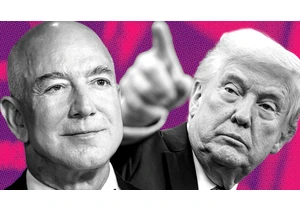Google’s corporate parent, Alphabet, delivered another quarter of steady growth amid an AI-driven shift in the ubiquitous search engine that is the foundation of its Internet empire.
The second-quarter report released Tuesday showed that Google is still reeling in advertisers on the heels of the May introduction of an artificial-intelligence feature that produces conversational responses to people’s search queries while downplaying its traditional display of related links to other websites.
Although the change sparked fear and outrage among online publishers worried their traffic will plummet, Google is still thriving and propelling Alphabet’s success.
“AI is expanding the kinds of queries we can address,” Alphabet CEO Sundar Pichai assured analysts during a Tuesday conference call. He repeatedly extolled AI as a technology he expects to transform society and that has made Google a better company.
Alphabet’s revenue for the April-June period climbed 14% from the same time last year to $84.74 billion. The Mountain View, California, company earned $23.62 billion, or $1.89 per share, a 29% increase from the same time last year. It marked fourth-consecutive quarter that Alphabet’s year-over-year revenue growth has surpassed 10%, although the pace during the April-June period slowed slightly from the January-March span.
The performance for the most-recent quarter exceeded the analyst projections that steer investors, according to FactSet Research.
Alphabet’s stock price rose 2% in extended trading after the report came out. The shares have already surged by 30% so far this year, largely riding the excitement surrounding the money-making opportunities afforded by the rise of AI—a field that Google is trying to mine through its DeepMind division and Gemini technology.
Google’s cloud-computing division that oversees data centers needed to power AI features is also benefiting from the craze. That division, Google’s fastest growing segment, generated revenue of $10.3 billion in the past quarter, a 29% increase from the same time last year. It’s the first time the cloud division has hit the $10 billion revenue threshold during a single quarter.
“We are innovating at every layer of the AI stack,” Pichai said during the call.
In a bid to lure more customers to its cloud-computing division, Google was angling to buy cybersecurity specialist Wiz for a reported $23 billion, but those talks have collapsed.
Google also abandoned another idea that could have reshaped its own digital ad system as well as the internet ecosystem. It’s pulling the plug on a plan that would have enabled its popular Chrome browser to automatically block third-party cookies—the coding that helps track web surfers in order to understand their interests.
As its financial and AI momentum builds, Google is still awaiting a decision in a high-profile U.S. Justice Department antitrust case aiming to undercut the power of its search engine. A federal judge is expected to issue a ruling later this year after sifting through reams of evidence presented during a high-profile trial in Washington, D.C.
—By Michael Liedtke, Associated Press
Accedi per aggiungere un commento
Altri post in questo gruppo

A new partnership between music creation platform BandLab and Sony is set to bring users production tools that are aimed at making independent musicians competitive with big-budget artists.


If AI lives up to its hype and we can “outsource” the thinking, planning, and strategy parts of our jobs, do we risk losing the skills that make us human?
Research from the Center for St

Influencers get a lot of stick these days. The latest thing they’re being blamed for: shark attacks.
Scientists have noted a recent rise in shark attacks, and according to new research p

As artificial intelligence gets smarter, a growing number of companies are increasing its implementation in their operations or more heavily promoting their own AI offerings. The buzzword for this

Consumers are only just starting to feel pain from Trump’s Liberation Day tariff spree. Amazon

When Donald Trump returned to the White House in 2025, many in the tech world hoped his promises to champion artificial intelligence and cut regulation would outweigh the risks of his famously vol
